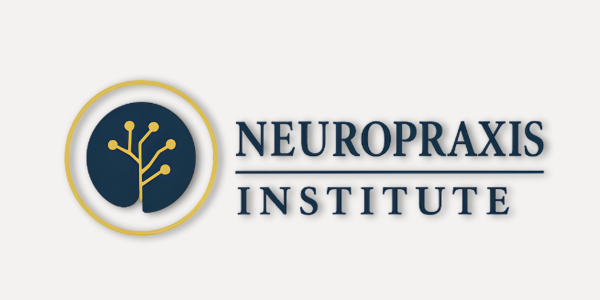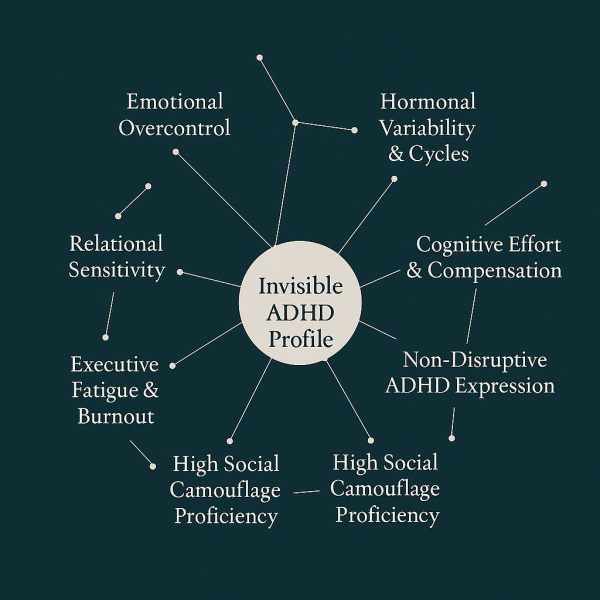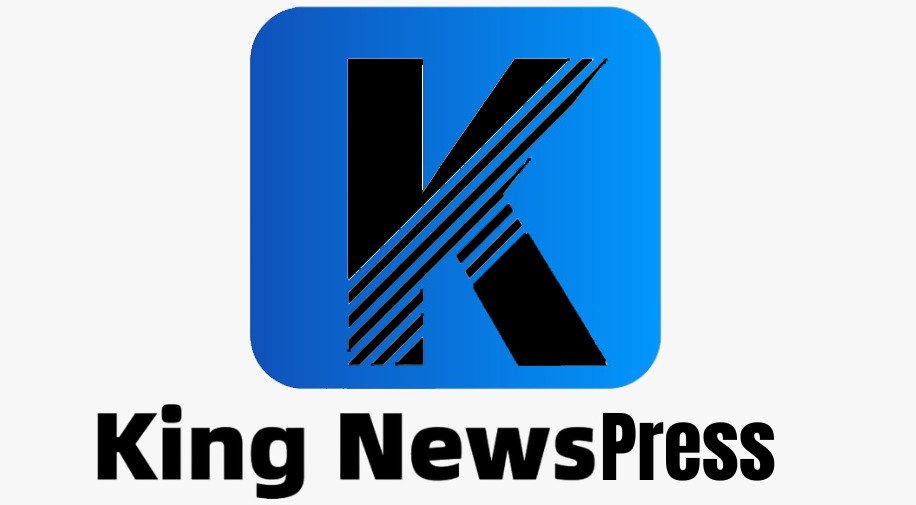NeuroPraxis Institute Launches Revolutionary ADHD Diagnosis Tool for Women and AFAB Adults
NeuroPraxis Institute challenges traditional ADHD diagnostic methods, offering revolutionary tools and training to better serve women and AFAB adults.
United States, 26th Nov 2025 – For years, the conversation around ADHD has been dominated by male-normed diagnostic criteria, leaving women and adults assigned female at birth (AFAB) to face a system that often fails to recognize their unique neurodevelopmental needs. Hidden behind the pervasive myths of ADHD in women, misdiagnosis, burnout, and invisible suffering, are countless untold stories of individuals who have long gone misunderstood. However, a shift is underway, led by the pioneering work of NeuroPraxis Institute (NPI). At the forefront of this revolution is a team of psychologists, educators, and subject matter experts who have dedicated their careers to filling the gaps left by traditional diagnostic systems.

Breaking the Silence: The Invisible Struggles of Women and AFAB Adults with ADHD
For too long, ADHD has been framed as a disorder of external hyperactivity and impulsivity, which has predominantly been studied in male populations. This narrow lens has resulted in a significant under-identification of ADHD in women, especially those who are highly masking or internalizing their symptoms. These individuals often struggle silently with feelings of inadequacy, exhaustion, and confusion as they navigate a world that doesn’t seem to understand them.
One of the lead faculty, Anastasia Sousa, was deeply influenced by her decades of clinical work, where she witnessed firsthand how ADHD in women and AFAB adults was often missed or misdiagnosed. “I saw brilliant women, highly capable but overwhelmed, fall through the cracks because their ADHD didn’t fit the conventional narrative,” Sousa reflects. “The frameworks we were using were outdated, biased, and incomplete. Too many people were being overlooked simply because they didn’t match the stereotype.”
This led to a pivotal development: the creation of the NPI–WAFAB Clinical Interview, a groundbreaking diagnostic tool designed to identify ADHD in women and AFAB adults with high-masking, internalized, or cyclical presentations. The NPI–WAFAB interview fills a crucial gap in clinical assessment by moving beyond behavior-first checklists and incorporating trauma-informed, culturally aware, and developmentally sensitive criteria.
A New Approach: Understanding, Not Gatekeeping
Traditional ADHD diagnostic models often rely on surface-level checklists, overlooking complex symptoms like emotional overcontrol, internalized distress, and masking. This leads to misdiagnosis, with many women being labeled with anxiety, depression, or personality disorders instead of ADHD.
The NPI-WAFAB™ Clinical Interview addresses this by offering a framework that recognizes the full spectrum of ADHD presentations, including those often overlooked. It allows clinicians to understand individuals’ unique experiences and challenges, making it possible to identify ADHD in those who have been excluded from the conversation.
“We’re not just diagnosing symptoms,” says Sousa. “We’re mapping out a person’s developmental profile, recognizing their unique struggles and strengths. ADHD is not one-size-fits-all, and our diagnostic tools should reflect that.”

A Resource for Clinicians and Neurodivergent Women Alike
Alongside the NPI–WAFAB Clinical Interview, Sousa’s forthcoming book, The Invisible ADHD Profile: A Guide for Clinicians and the Women They Serve, offers an in-depth look at the diagnostic framework that supports the tool. The book is designed not only for clinicians but also for neurodivergent women themselves, offering them valuable insights into the patterns of behavior and internal experiences that often go unrecognized.
In the book, Sousa outlines a developmental model for understanding ADHD, one that is informed by both scientific evidence and lived experience. “This book is for the women who have felt invisible in the ADHD conversation,” says Sousa. “It’s about giving them the language and framework to understand themselves more clearly, while also empowering clinicians with the tools to identify and support them effectively.”
For clinicians, The Invisible ADHD Profile offers a much-needed shift away from outdated, deficit-based diagnostic approaches. Instead, it provides evidence-informed guidance that helps professionals recognize and work with the complexity of ADHD as it manifests in women and AFAB adults.
Global Impact: Making Modern Training Accessible
What makes NeuroPraxis Institute stand out is its commitment to not only redefining ADHD assessment but also making this new understanding accessible to a global network of professionals. With its postgraduate-level training programs, CE/CPD courses, and international recognition, NPI is working to ensure that the next generation of clinicians has the knowledge and skills to provide more accurate, inclusive assessments.
“Our goal is to democratize knowledge,” says Sousa. “Clinicians around the world are hungry for better training, but the resources have not been available in an accessible, accredited form. We’re changing that by offering high-level, evidence-based education that’s both rigorous and practical.”
By providing internationally recognized qualifications, NPI ensures that clinicians can integrate trauma-aware, developmentally grounded, and culturally sensitive assessment practices into their work. These programs empower not only psychologists and therapists but also educators, social workers, and other professionals who encounter neurodivergent individuals in their daily work. This holistic approach is what sets NPI apart from other training institutes that may focus solely on one professional group.

A Call for Change: The Future of Neurodivergent Support
The work that NeuroPraxis Institute is doing is not just about transforming diagnostic practices, it’s about challenging and reshaping the entire landscape of neurodivergent support. Programs offered beyond assessment training include a non-licensure intervention graduate program for those seeking a career change where they can make a real difference in supporting children and adults with executive functioning, memory and study skills, cognition remediation, social-behavioral support, and academic assessment. Additionally, a professional certificate in Neuroaffirming Medical Concierge is opening pre-enrollment for the summer cohort, for individuals interested in offering this much needed service supporting individuals and families with case management, coaching for appointments, role play, and processing of the complexities of the often co-occurring web of medical needs neurodivergent individuals experience. “This one of a kind program is ideal for practitioners looking to get out of clinic practice, nurses and educators looking to start a business, and non-licensed individuals who are called to support their communities in a non-clinical capacity. For too long, traditional systems have failed to consider the full diversity of needs around communication, executive function, emotional regulation, organization/planning, and so on when it comes to the multitude of appointments and obligations expected of individuals for whom simple calendaring can be a challenge. Add in the stress of meeting with specialists, intensity of the topic, overwhelm of information, and sometimes intimidation, a coach-concierge is a role that has long been needed but unidentified, until now.”
Through the NPI–WAFAB Clinical Interview, The Invisible ADHD Profile book, and its global network of educators and clinicians, NPI is leading the charge to modernize practitioner skills and community supports toward a more inclusive global environment. As Anastasia emphasizes, “This is not just about offering a new tool or another degree; it’s about shifting the way we think about clinical, non-clinical, and educational practice for our current and next generation.. It’s about creating a world where everyone, regardless of neurotype, has access to the support they need to design their life of right fit.”
To learn more about how NeuroPraxis Institute is transforming the future of ADHD diagnosis, visit NeuroPraxis Institute.
Media Contact
academicaffairs@neuropraxis.institute
Website
Company Details
Organization: NeuroPraxis Institute
Contact Person: NeuroPraxis Institute
Website: https://neuropraxis.institute/
Email: Send Email
Country: United States
Release Id: 26112537813
Disclaimer: This press release is for informational purposes only and does not constitute medical or psychological advice. Individuals seeking assessment or treatment for ADHD or other neurodevelopmental conditions should consult a licensed healthcare professional.
